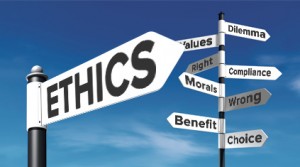We get attached. It’s part of what makes us human. When that attachment is to a brand, it’s known as “brand loyalty”. The Business Dictionary defines it as “The extent of the faithfulness of consumers to a particular brand, expressed through their repeat purchases, irrespective of the marketing pressure generated by the competing brands.” In the field of electronics, Apple is a company that is known to have a very loyal customer base. This Jimmy Kimmel video is a great example.
People on the street were presented with what they were told was the newest iPhone, but they were actually being shown an 8 year old model. They still praised it though, saying things like “Apple has done it again”. The device was obviously old and obsolete. Faith in Apple caused these people to ignore their instincts telling them that the phone was a piece of junk. Customers like these are essential to Apple’s (and countless other companies) success. After all, 80% of revenue for most companies comes from 20% of their customers — the loyal ones. The uninformed praise, unconditional love, or whatever you want to call the disregard of common sense displayed in the video is essential for business owners today to be aware of. For many companies, the quality of their products is not nearly as important as the techniques they use to create loyal customers.

